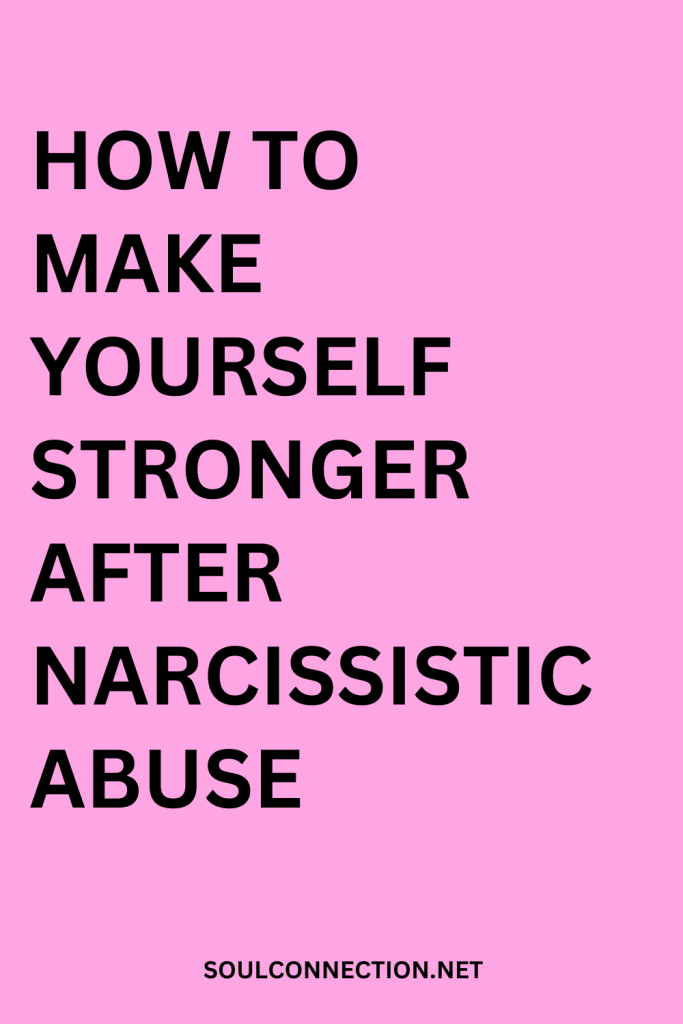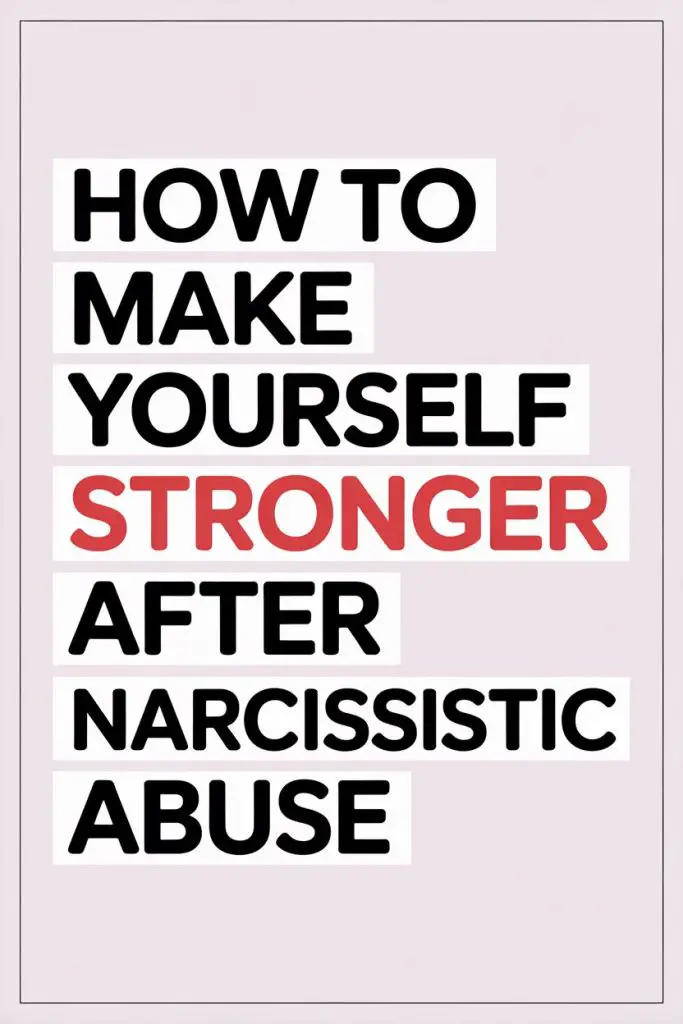Emerging from a relationship with a narcissist feels a bit like waking up with jet lag in a country where you don’t speak the language and the locals are all eyeing your shoes.
You know you’ve survived something disorienting; you’re just not sure which way is north anymore.
But here’s the good news: it’s entirely possible to find your bearings, reclaim your self-worth, and build a life far more interesting—and far less exhausting—than the one you left behind.
Let’s get into the nuts and bolts of healing, rebuilding, and maybe even laughing at the absurdity of it all.
Grieve the Old Story
No one walks away from narcissistic abuse with a polite handshake and a gift basket.
The aftermath is messy, confusing, and full of grief. Grieving isn’t just about missing the person; it’s about mourning the fantasy, the potential, the time lost, and the version of yourself that was slowly chipped away.
Allow the sadness, the anger, and the thousand “what ifs.” Cry in the shower, scribble angry notes, have imaginary arguments with your former partner in the car—whatever helps. This is not wasted energy; it’s necessary.
Without acknowledging the pain, it will follow you like a toddler with a tambourine: loud and impossible to ignore.
Reclaim Your Reality
Reality becomes a slippery concept after dealing with a narcissist. Gaslighting turns day into night and up into “are you sure that’s up?” You may find yourself doubting even the smallest details.
Start small. Trust your perceptions, even if your inner critic is screeching. Did you just see a lovely sunset? Yes, you did. Is your taste in music actually fine? Absolutely.
Reconnect with friends and environments that feel grounding. Write down what you see and experience—this helps to anchor your reality and reminds you that your version of things matters.
Relearn Boundaries Without Apology
Boundaries in a narcissistic relationship are about as solid as wet tissue paper. If you’re used to saying “yes” when you mean “I’d rather lick a subway pole,” it’s time to start practicing your “no.”
This is not selfish; it’s self-preservation. Start with tiny boundaries: don’t answer texts after a certain hour, decline invitations you don’t want, or take a weekend to be gloriously unavailable. Watch how the world doesn’t collapse.
Anyone who tries to guilt you for having needs? Congratulations, you’ve just discovered someone who needs a boundary.
Question the Inner Critic
A narcissist comes with a free, all-inclusive inner critic—one that moves in, redecorates, and starts narrating your life’s every move. “You’re too sensitive.” “You’ll never find someone else.” “You’re the problem.” Sound familiar?
This voice isn’t your intuition; it’s an echo of manipulation. When your inner critic pipes up, ask yourself, “Would I say this to a friend?” If the answer is no, it’s time to toss that script in the bin.
Replace the harshness with curiosity: “Why do I feel this way?” “What do I actually want?” The goal isn’t to become a self-help robot—it’s to get your real voice back in charge.
Get Bored with the Drama
Narcissists are allergic to boredom. Drama is their favorite food group. After leaving, you might notice your life feels oddly quiet, maybe even bland.
Guess what? That’s what peace feels like. It can be disconcerting, especially after living on adrenaline and anxiety. Give yourself permission to be bored. Take a nap. Read a book with zero plot twists. Call it “emotional detox.”
Over time, you’ll start craving this calm, realizing it’s the absence of chaos—not the absence of excitement.
Build Self-Trust With Small Wins
After manipulation and gaslighting, trusting yourself again feels about as likely as trusting a politician’s promise. The trick is to start tiny.
Pick something simple: decide what’s for dinner and stick with it. Choose a movie you actually want to watch. Wear socks that make you happy.
The more you make decisions that honor your preferences, the more you’ll remember that your judgement is not only valid—it’s worth celebrating.
Curate Your Support Squad
If you were isolated during your narcissistic relationship (and let’s face it, that’s narcissist 101), rebuilding your support system feels daunting.
You don’t need dozens of close friends—just a handful of people who don’t secretly hope you’ll get back together with your ex or suggest you “try harder” next time.
Seek out friends who listen without fixing, family members who let you vent, therapists who help you untangle the knots. If your circle is smaller than you’d like, online communities for survivors of narcissistic abuse offer validation and understanding with zero obligation to put on pants.
Reconnect With Joy, Even if It’s Awkward
Joy is a muscle that atrophies in toxic relationships. Start flexing it, even if it feels unfamiliar.
Dig up old hobbies, or try something ridiculous just because you can. Bake an ugly cake. Sing along badly to cheesy songs. Watch a cat video, or three.
Joy doesn’t need to be Instagrammable or impressive; it just needs to be yours. And if you can’t remember what you once enjoyed, experiment until something clicks. After all, nobody is going to grade your happiness.
Forgive Yourself for Anything and Everything
Survivors of narcissistic abuse become experts in self-blame: “Why didn’t I see it sooner?” “How could I have stayed so long?” These questions are about as useful as a chocolate teapot.
Self-compassion is your antidote. Remind yourself that narcissists are experts in manipulation—Olympic-level, really. You did what you needed to survive.
Now, offer yourself the forgiveness you probably wish someone else had given you. This isn’t about excusing bad behavior; it’s about refusing to be stuck in the role of victim forever.
Set Your Sights on the Future
Healing is not a destination with a finish line and confetti. It’s a winding, uneven road with occasional potholes and the odd scenic overlook.
What’s next for you? Dream small or dream big. Maybe it’s as simple as sleeping well for a week, or as ambitious as starting a new career or relationship.
The important thing is to claim your future as your own, untethered from the narrative the narcissist wrote.
Goals are allowed to change. Hopes can be tentative. The future is, by definition, unwritten—and this time, you hold the pen.
When Healing Feels Like Herding Cats
Some days, it all clicks; other days, you’ll feel like you’ve been sideswiped by a memory or a song on the radio. That’s not failure—it’s just healing in progress.
Keep going. Celebrate tiny victories. Laugh when you can. Surround yourself with people who get it, or at least people who bring snacks.
Healing from narcissistic abuse is hard, but you’ve already done the hardest part: you survived.
Now comes the good bit—the part where your life belongs to you again. Shine on (and maybe buy yourself those shoes the locals were eyeing).


